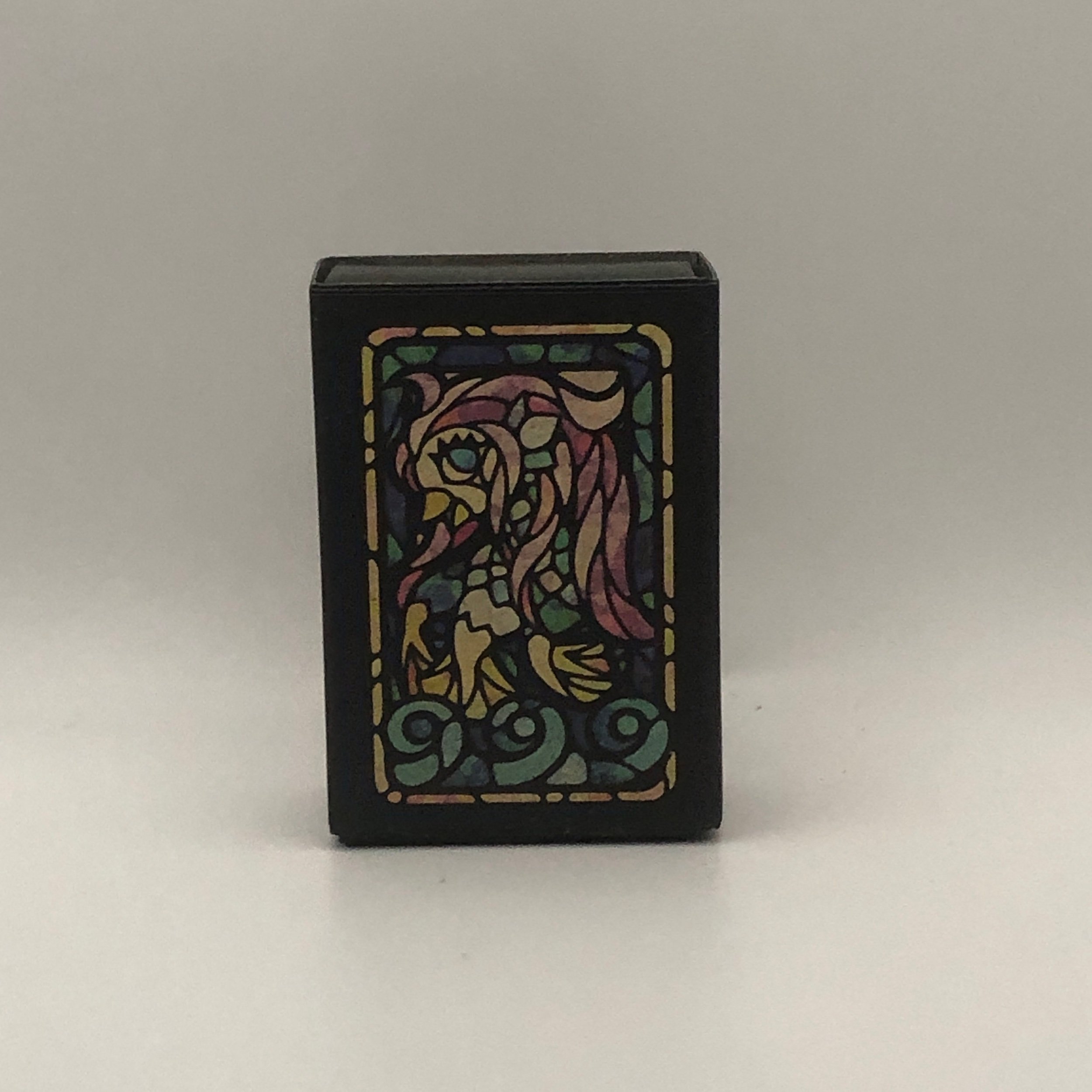Amabie (IMPORT)
This game is Japanese but is language-independent and English rules are provided in the box.
This is a very short card game for two using the Japanese Yokai Amabie as the theme. Amabie first began appearing in Japan in 1846 forecasting 6 years of good harvest followed by a plague. Amabie said "draw me and show me to the people, so that you can be free of disease" according to historical experts.
The game consists of only 6 cards one of which is Amabie. The cards are worth differing points from 0 to 3 (Amabie). Players each look at one card from their hand, the rest remain facedown and then give the other player a card from their hand for 3 rounds. the player at the end with the most points is the winner.
This game is Japanese but is language-independent and English rules are provided in the box.
This is a very short card game for two using the Japanese Yokai Amabie as the theme. Amabie first began appearing in Japan in 1846 forecasting 6 years of good harvest followed by a plague. Amabie said "draw me and show me to the people, so that you can be free of disease" according to historical experts.
The game consists of only 6 cards one of which is Amabie. The cards are worth differing points from 0 to 3 (Amabie). Players each look at one card from their hand, the rest remain facedown and then give the other player a card from their hand for 3 rounds. the player at the end with the most points is the winner.
This game is Japanese but is language-independent and English rules are provided in the box.
This is a very short card game for two using the Japanese Yokai Amabie as the theme. Amabie first began appearing in Japan in 1846 forecasting 6 years of good harvest followed by a plague. Amabie said "draw me and show me to the people, so that you can be free of disease" according to historical experts.
The game consists of only 6 cards one of which is Amabie. The cards are worth differing points from 0 to 3 (Amabie). Players each look at one card from their hand, the rest remain facedown and then give the other player a card from their hand for 3 rounds. the player at the end with the most points is the winner.

